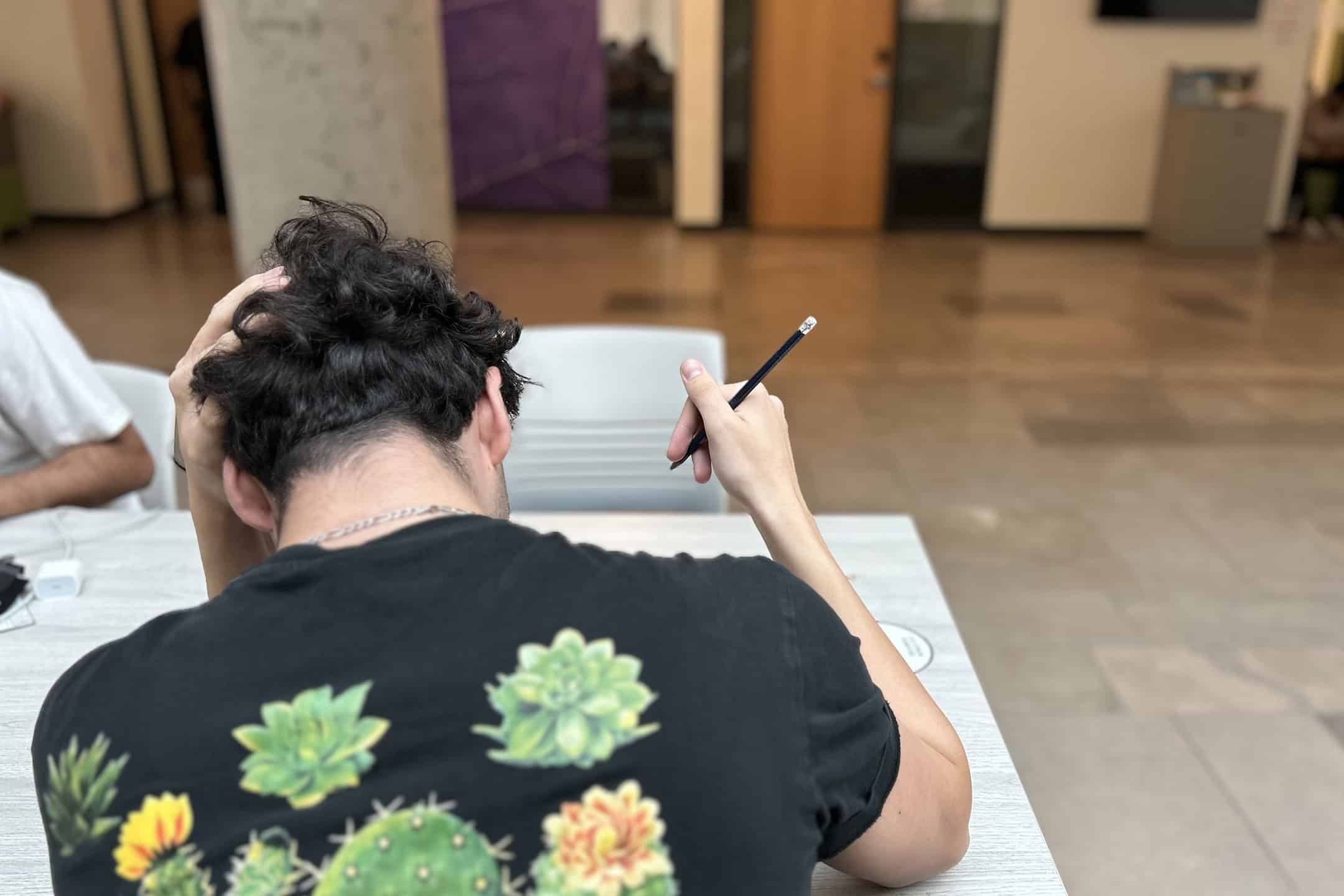Do you ever find yourself blanking during an exam that you studied for weeks, or struggle to succeed in tasks you’re usually great at when it actually counts? If you created a hypothesis for why this phenomenon occurs, would you attribute it to a lack of motivation, a disturbance in the brain, or a decline in the rate of signals sent from the brain to our bodies? A group of neuroscientists, engineers, and researchers in Pittsburgh, Pennsylvania, studied the brains of rhesus monkeys to uncover the reasons behind this common dilemma.
Rhesus monkey brains ‘choking under pressure’
In a 2024 paper, researcher Adam Smoulder and his colleagues discuss how the brains of rhesus monkeys react to high-pressure situations. They provided three monkeys with a computer monitor and attached a cursor to their index fingers. The task was straightforward: keep the cursor on the central target displayed in the middle of the screen, and refrain from moving it when another target appeared until the central target disappeared. If the monkeys succeeded, they were given a reward; if they failed, they faced a punishment. While all three monkeys had decent success rates for small to medium rewards, their success significantly decreased under the highest-pressure task, the jackpot.
So what caused this dip, specifically the phenomenon of ‘choking under pressure’ in these primates? The scientists found that the reward system was closely linked to the monkeys’ motor cortices, the part of their brain that is responsible for movement. When presented with a significantly larger reward than usual, the subject’s reward system became so highly stimulated that the neurons could not transmit enough information to the motor cortex’s preparation site, meaning you wouldn’t be sufficiently prepared to move. This led to the conclusion that motor performance declines when subjects are faced with a larger reward.
Applying beyond the monkey brain
So what does this mean for us humans? When faced with higher levels of rewards or potential punishment, we often find ourselves excessively monitoring our performance, becoming highly aroused, distracted, or stressed. This can lead to overstimulation of our reward systems, similar to the effects observed in rhesus monkeys. As a result, motor systems receive less signalling than usual, which diminishes our ability to effectively tackle the task at hand.
So how can we, as students and members of society, best coexist with this potential biological disadvantage? Harvard’s Business Review states that to decrease the likelihood of choking under pressure, we should practice, rationalize, and ‘just do it.’ But that’s all easier said than done, isn’t it? People often tell us that meditation is key, and while it can be a great habit for some, what about those who find meditation to be a source of stress?
Through years of trial and error, I’ve discovered that not much of what works for others works for me. To be completely honest, I have not yet found a foolproof solution that works every time. Some techniques, like giving myself time to mentally prepare by creating a list of next steps or clenching my jaw, help much more than deep breathing exercises. Some of my friends find that imagery training — a common technique used in sports where individuals mentally visualize success — works best for them, while others prefer to talk themselves through the activity step-by-step to find their way out.
Everyone is unique and copes with stress in their own way. With over eight billion people in the world, there could be just as many solutions. There has to be one out there that works for both you and me. So, if you ever find yourself choking under pressure, remind yourself that it could be due to your brain being stressed or overly excited, making it hard to stay still!



No comments to display.